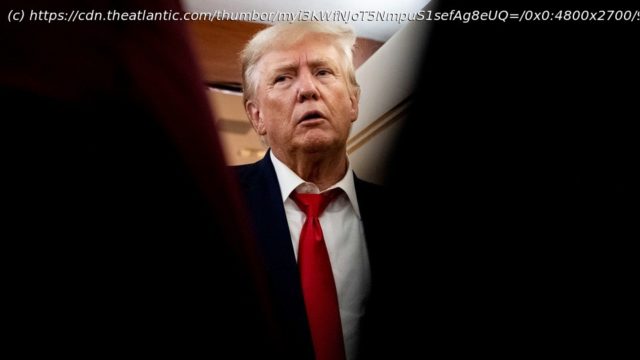The federal indictment of Donald Trump depicts a man who knew that what he was doing was wrong and went to great lengths to cover it up.
We knew it would be bad. Even so, it’s bracing just how bad the evidence laid out by the Justice Department against Donald Trump is.
The indictment against Trump and his personal valet, Walt Nauta, unsealed this afternoon, lays out the federal case against the former president in vivid, shocking, and sometimes even wry detail. An indictment is not a conviction—it’s a set of allegations by prosecutors, without rebuttal from the defendant. Trump is innocent in court until proven guilty, and has loudly and insistently proclaimed that he is an innocent man. But the evidence included shows why the case against Trump is so disturbing, and why it will be tough for him to defend. And the crimes it details are among the stupidest imaginable.
In particular, Special Counsel Jack Smith alleges a few key points. First, that Trump handled the classified material exceptionally sloppily and haphazardly, including stashing documents in a shower, a bedroom, and—as depicted in a striking photo—onstage in a ballroom that frequently held events. Second, that Trump was personally involved in discussions about the documents, and in directing their repeated relocation. Third, that Trump was well aware of both the laws around classified documents and the fact that these particular documents were not declassified. Fourth, that Trump was personally involved in schemes to hide the documents not only from the federal government but even from his own attorneys. The indictment carefully lays out its case with pictures, texts, and surveillance footage.
In sum, the indictment depicts a man who knew that what he was doing was wrong, and went to great lengths to cover it up. Trump knew exactly how bad it would be if the documents were found, and wanted them destroyed or hidden. His fears, as manifested in his indictment, were well founded.
In brief comments at the Department of Justice this afternoon, Smith said that mishandling of classified information had endangered the nation’s security and the lives of service members and intelligence officers. “Violations of those laws put our country at risk,” he said.
Trump has raged that he, a former president, should not be subject to criminal charges, but Smith offered a rebuttal. “Adherence to the rule of law is a bedrock principle of the Department of Justice,” he said. “Our nation’s commitment to the rule of law sets an example for the world. We have one set of laws in this country and they apply to everyone.”
The indictment includes 37 counts against Trump involving seven crimes, including willful retention of national-defense information, conspiracy to obstruct justice, withholding a document or record, corruptly concealing a document or record, concealing a document in a federal investigation, scheme to conceal, and false statements and representations. If he is convicted, he could face years in prison, as could Nauta.
When Trump left the White House, he took with him dozens of haphazardly stuffed boxes. The president was personally involved in the packing, Smith alleges. The result of the haste and carelessness was that some of the nation’s most sensitive secrets were mixed in with newspaper clippings, photos, notes, and other bric-a-brac.
Experts often lament excessive classification, which results in material that’s not really sensitive being branded secret.






